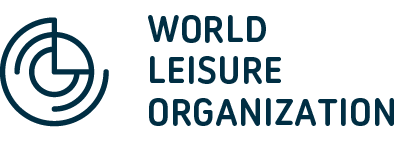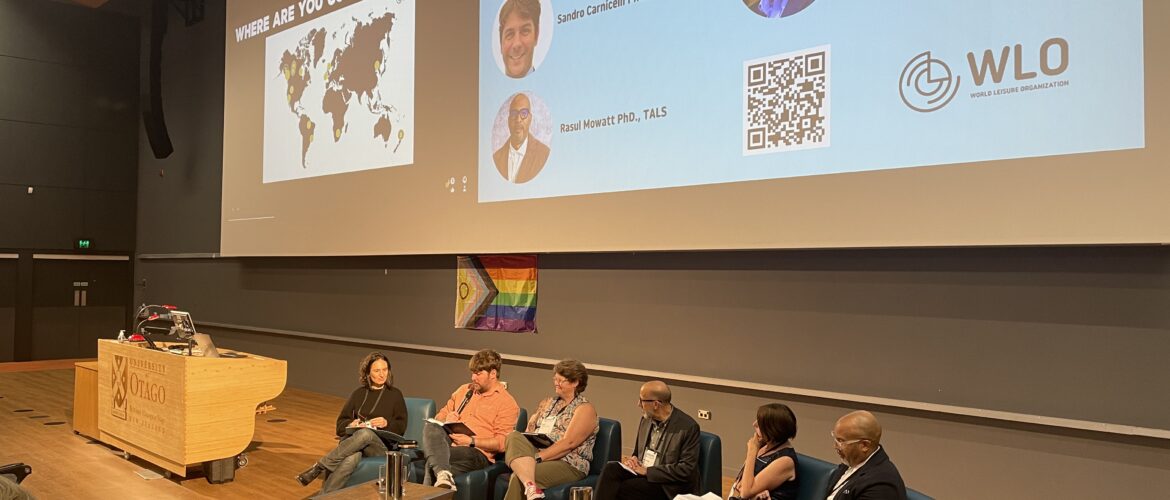The 2023 Global Leisure Debate, held on December 15, was dedicated to “The role of leisure in eradicating poverty and addressing the needs of the most marginalized communities”. This year’s edition counted with the participation of experts representing the regional leisure associations – ANZALS, TALS, CALS, LSA – as well as the WLO, who provided different geographical perspectives on this relevant topic, which will be the theme of the UN High-level Political Forum on Sustainable Development (HLPF) 2024.
This year’s edition of the Global Leisure Debate (December 15, 2023) was organized as a panel discussion chaired by WLO Board member Dr. Arianne Reis, and counted with the participation of five speakers representing regional/national leisure organizations and the WLO: Nicole Peel PhD., Australian and New Zealand Association for Leisure Studies (ANZALS); Rasul Mowatt PhD., The Academy of Leisure Sciences (TALS); Aggie Weighill PhD., Canadian Association for Leisure Sciences (CALS); John Dattilo PhD., World Leisure Organization (WLO), and Sandro Carnicelli PhD., Leisure Studies Association (LSA). The audience had the opportunity to participate via Mentimeter and provide their inputs to the questions posed to the speakers
The topic of the 2023 Global Leisure Debate was “The role of leisure in eradicating poverty and addressing the needs of the most marginalized communities”, as a preamble to the 2024 SDGs Learning, Training and Practice Special sessions in the framework of the UN High-level Political Forum on Sustainable Development (HLPF) 2024. The theme for 2024 HLPF will be “Reinforcing the 2030 Agenda for Sustainable Development and eradicating poverty in times of multiple crises: The effective delivery of sustainable, resilient and innovative solutions”, and it will conduct in-depth review of SDG 1 (no poverty), SDG 2 (zero hunger), SDG 13 (climate action), SDG 16 (peace, justice and strong institutions), and SDG 17 (partnerships for the Goals). In 2017, this theme was discussed at the 55th UN Commission for Social Development (CSocD55), where WLO participated as NGO in a consultative status with ECOSOC.
One of the ideas that emerged from the Global Leisure Debate is that, with 8.5 % of the world population living in extreme poverty, it is demonstrated that behaviors are not the cause of poverty, and yet they are the focus of policy programs. Furthermore, the word “poverty” is not mentioned in any of the mission statements of the United States cities with more than 1 million inhabitants. During the panel discussion, the conceptualization of leisure was also problematized, as it is usually seen as a commodity, from an economic perspective – if people cannot pay for leisure, therefore they cannot have leisure. These ideas clearly indicate a long way before us to make the message about what leisure is and why it is important across to policymakers and people with power.
Speakers at the Global Leisure Debate also pointed to the low attention that poverty eradication has received in scholarly publications in the field of leisure and claimed for a holistic view – when considering the positive and negative impacts of leisure – that connects the different struggles societies from all over the world face.
The Global Leisure Debate was organized for the first time in the World Leisure Congress 2018, in Sao Paulo, to fill an existing gap and provide a space for global, open conversations on globally relevant topics. Since then, the model has been shared with our sister organizations in the Global Relevance Committee, and the initiative was already replicated at the last CALS Conference. We hope to see more of these very enriching conversations organized in upcoming congresses and conference!





Leave a Comment